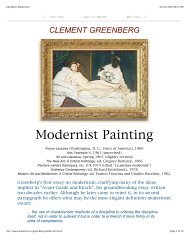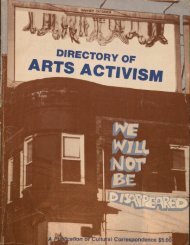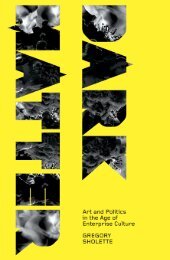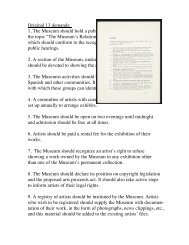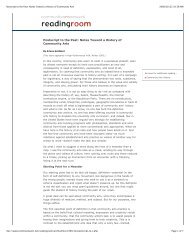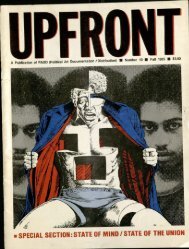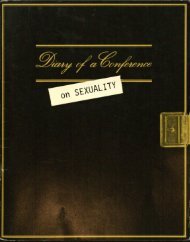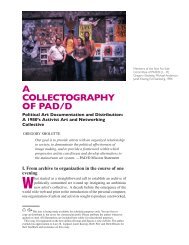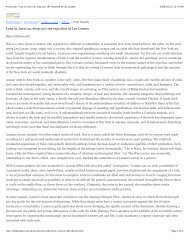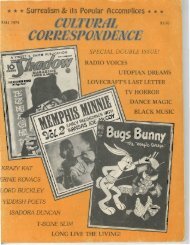The New Spirit of Capitalism - Dark Matter Archives
The New Spirit of Capitalism - Dark Matter Archives
The New Spirit of Capitalism - Dark Matter Archives
You also want an ePaper? Increase the reach of your titles
YUMPU automatically turns print PDFs into web optimized ePapers that Google loves.
7ExcitementFairnessSecurityFreedom from localcommunities ProgressA mix <strong>of</strong> domestic andmarket fairnessPersonal property,Personal relationshipsCharity,PaternalismCareer opportunitiesPower positionsEffectiveness possiblein “freedomcountries”Meritocracy valuingeffectivenessManagement byobjectivesLong term planningCareersWelfare stateNo more authoritarianchiefsFuzzy organisationsInnovation andcreativityPermanent change<strong>New</strong> form <strong>of</strong>meritocracy valuingmobility, ability tonourish a network,…Each project is anopportunity to developone’s employabilityFor the mobile andthe adaptableCompanies willprovide self-helpresourcesTo manage oneself<strong>The</strong> transformations <strong>of</strong> the last decades have been accompanied by a relatively radicalchange in the definition <strong>of</strong> what comprises a fair work situation, and a fair treatment <strong>of</strong> someemployees as compared to others. <strong>The</strong> following section allows us to identify the nature <strong>of</strong>this change.3. <strong>The</strong> emergence <strong>of</strong> a new value systemTo be able to identify the exact nature <strong>of</strong> the notion <strong>of</strong> fairness as depicted in themanagement texts we studied, we used a theoretical construct that Luc Boltanski haddeveloped together with Laurent Thévenot in an earlier publication (Boltanski, Thévenot,1991): the “justificatory regime ”model (“Cité ” in the French). This construct had initiallybeen designed with a view towards highlighting the conditions that make it possible to saywhether an evaluation or distribution <strong>of</strong> goods was being done in a fair and legitimate manner.<strong>The</strong>se situations are characterised by the fact that whatever judgement peopleultimately make, they face a certain amount <strong>of</strong> criticism. Refusing to remain within theconfines <strong>of</strong> the opposition that is usually drawn between the sociology <strong>of</strong> consensus and thesociology <strong>of</strong> criticism, Boltanski and Thévenot argued that these “legitimate orders” can beused to reach agreement as well as to support criticism. <strong>The</strong>y called these constructs Cités,thus referring to classical political philosophies whose object had been to design a legitimateorder based on a principle <strong>of</strong> justice. However, as opposed to political philosophies that hadusually attempted to anchor this social order in a single principle (utopianism), they arguedthat, in complex modern societies, several justificatory regimes can coexist within the samesocial space, even though their relevance may vary in accordance with the situation’scharacteristics (i.e., with the material or symbolic nature <strong>of</strong> the objects involved). Finally,unlike the “linguistic turn”, and in order to avoid an idealistic construction that is overlyreliant on verbal argumentation, Boltanski and Thévenot considered that people’s claims hadto be confronted with the real world, hence pass a series <strong>of</strong> more or less standardisedprocedures they called tests (“épreuve” in the French). In the end, it is the outcome <strong>of</strong> these



